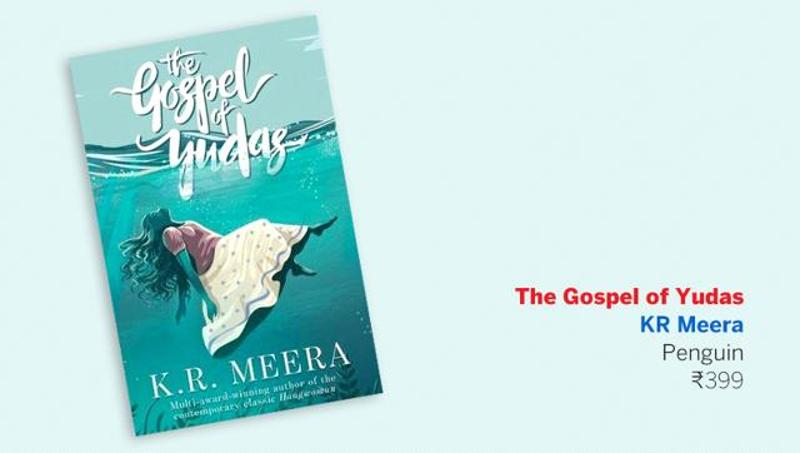Miss Alone
Prime VIP

A traitor never sleeps, and neither will you till you’ve read KR Meera’s latest offering from cover to cover. I would say this is a love story, because that is how the author describes the novel.
But, it’s not a story about falling in love, or finding it. The Gospel of Yudas or Judas does not tell the tale of a fairy tale romance, but takes its readers through a perfect journey into the hot, sticky, messy, grimy underbelly of human emotion.
Following the life of Prema, an impetuous young girl, KR Meera finds an unique and compelling way to tell a story about Naxalites, that goes deeper than politics or ideology. Instead, she uses love — the strongest emotion known to human beings — to humanize a movement that’s so often been demonized and exploited for partisan gains.
The reader follows Prema, first as an overconfident 15-year-old daring a man double her age to love her, and finally, as a dying middle-aged virgin willing Yudas, her love interest, to stay with her. This is the broad theme of the book — Prema’s unrequited, passionate, illogical love for a man who fishes out dead bodies from a lake in her village.
But, this book is much like a lake in itself. It’s calm, romance-themed surface hides tumultuous and contradictory thoughts about the Naxalite movement, about the Emergency, and about the infamous atrocities committed in prison camps in Orissa.

Even further beneath the surface of this simply love story, one finds the author testing the darkest depths of the human soul. It’s as if Meera is using Prema’s character to venture into the blackness of our hearts and to confront the strength of will that we are capable of, when it stems from selfishness. Prema’s character would not move a muscle were it not for her love of Yudas. Because of her extremely illogical feelings, she sees and allows us to see people and places that have too long been white-washed by other writers intent on proving a point rather than telling a story.
Ultimately, this book is a story — a romance, but not with a person. It’s about a romance with one’s potential, one’s ideals. It’s about a romance with that last bit of rebel that each one of us carries within, and whom we often forget to feed. That’s what Prema’s character does for this book.
The Gospel, which belongs to the character Yudas, is another matter. Towards the end of the book, Meera writes that a line by a friend inspired the book. Her friend had told her about a Naxalite who suffers deeply because of the information he gave away under torture. With this one primer, the entire book was born in her head, Meera says. And it must have because that one line is the description of Yudas’s character. He is a deeply flawed and obstinate disbeliever whose one tragic flaw is the ability for unbridled and idealistic love, which was used against him during torture sessions in the prisons of Orissa.
The Gospel of Yudas is simply to not love, to not be loved. Only, there he is: being loved, unequivocally and without any expectations. In this too, there is hope. An optimism that even when we give up on life, it isn’t necessarily done with us.
The most poignant section of the book comes mid-book when Prema visits Yudas in his hut by the beach, and spends the night with him. The chapter leaves the reader praying that both characters find salvation in each other; that Yudas stays; that Prema finally loses the virginity she’s been carrying around like a burden of pride. But, this reader was much more satisfied when the scene ended in an unexpected way. Because this is not a romance novel; this is a novel about the dirty, grimy, painful and black emotions of love and loss. It sucks a reader in with its calm writing only to drown her in a tidal wave of human honesty.
